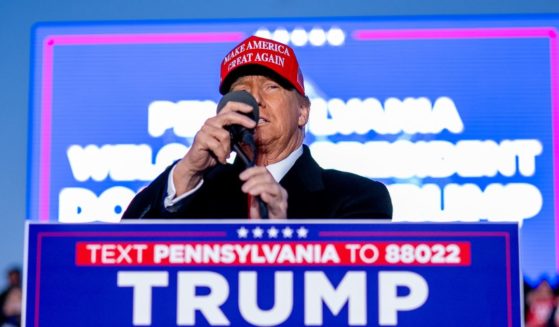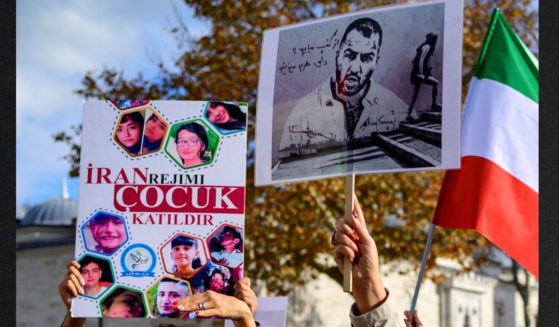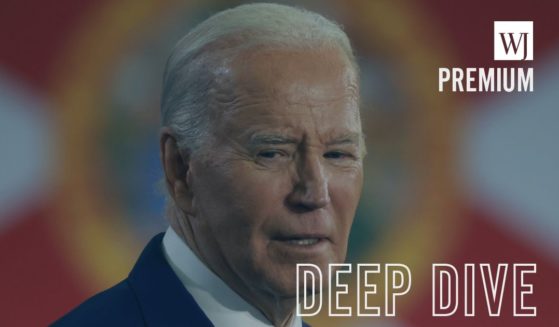Built as a Massive Church Decades Before Islam, Famous Turkish Monument Will Be Converted into a Mosque
In what one critic called “an open challenge to the entire civilized world,” Turkish President Recep Tayyip Erdogan on Friday ordered that the world famous Hagia Sophia in Istanbul be used as a mosque.
The Hagia Sophia that stands today is the third by that name, according to History.com. The first was begun as a Christian basilica in the reign of Byzantine Emperor Constantius in 360 A.D. The structure was burned to the ground in 404 A.D. and rebuilt in 415 A.D. under Emperor Theodosios II. The current structure was built during the reign of Byzantine Emperor Justinian I in 537 A.D and thus is nearly 1,500 years old.
After the fall of Constantinople in 1453, the Hagia Sophia became a mosque until 1934, when it was converted into a museum.
Islam was founded by the prophet Muhammad at approximately the start of the seventh century.
Erdogan said the mosque will hold its first prayers on July 24. He acted after a Turkish court threw out the ruling that converted the holy site into a museum, according to NBC.
“I underline that we will open Hagia Sophia to worship as a mosque by preserving its character of humanity’s common cultural heritage,” he said in a televised address to the nation, according to the network. “Like all of our other mosques, the doors of Hagia Sophia will be open to all, locals or foreigners, Muslims and non-Muslims.”
Some said the plan meshed with Erdogan’s design of making Turkey a largely Muslim country while preserving its traditional separation of church and state.
“Mehmet the Conqueror took the holy city with his sword; he always wanted Hagia Sophia to be a mosque,” Ozlem Kaya, 52, a resident of Istanbul, told NBC. “With Erdogan, Turkey will be a more powerful country in the near future. There is no need to be secular anymore.”
Greek Culture Minister Lina Mendoni called Ergodan’s decision “an open challenge to the entire civilized world that recognizes the unique value and universality of the monument,” according to Politico.
“Hagia Sophia, located in Istanbul, is a monument to all mankind, regardless of religion,” she said.
State Department spokesperson Morgan Ortagus voiced concerns at the change.
“We are disappointed by the decision by the Government of Turkey to change the status of the Hagia Sophia. This building is an important part of the ‘Historic Sites of Istanbul’ UNESCO World Heritage Site in recognition of its rich multicultural history,” she said, according to NBC.
“We understand the Turkish Government remains committed to maintaining access to the Hagia Sophia for all visitors, and look forward to hearing its plans for continued stewardship of the Hagia Sophia to ensure it remains accessible without impediment for all,” she said.
Erdogan, who said the action was within Turkey’s rights, announced the action on Twitter.
President Erdogan signs the decree to re-open #HagiaSophia as a mosque. In the decree, #Erdogan referers to the court decision and transfers the property to Diyanet, the directorate of religious affairs as a mosque to be opened for prayers pic.twitter.com/m4DAwoqJwH
— Kartikeya Sharma (@kartikeya_1975) July 10, 2020
Criticism flowed immediately.
Greek FM @NikosDendias briefed fellow ministers in the @EPP on Turkey’s decision to convert Hagia Sophia into a mosque. @cultureGR Lina Mendoni, is “a blatant provocation to the entire civilized world, a world that recognizes the unique value and universality of this monument.”⬇️ https://t.co/dIBLBDWP0K
— Embassy of Greece in the US?? (@GreeceInUSA) July 10, 2020
Cyprus “strongly condemns Turkey’s actions on Hagia Sophia in its effort to distract domestic opinion and calls on Turkey to respect its international obligations,” Foreign Minister Nikos Christodoulides tweeted.
(3/3) #Cyprus strongly condemns #Turkey’s actions on #HagiaSophia in its effort to distract domestic opinion, and calls on #Turkey to respect its international obligations.
— NikosChristodoulides (@Christodulides) July 10, 2020
Patriarch Bartholomew, head of the Orthodox Christian Church, said on his Facebook page that conversion to a mosque brings confrontation and conflict, not unity.
“The conversion of Hagia Sophia into a mosque will disappoint millions of Christians around the world, and Hagia Sophia, which, due to its sacredness, is a vital center where East is embraced with the West, will fracture these two worlds, more so at a time when the afflicted and suffered mankind, due to the deadly pandemic of the new coronavirus, is in need of unity and common orientation,” he wrote.
Truth and Accuracy
We are committed to truth and accuracy in all of our journalism. Read our editorial standards.












